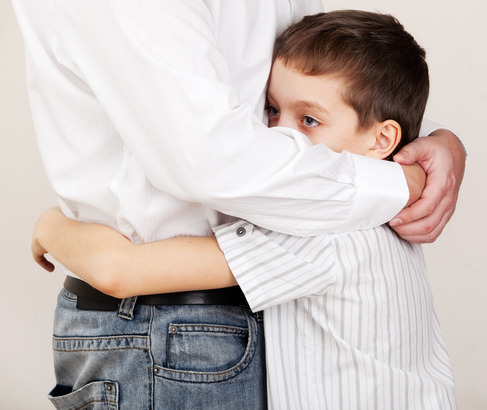 Nationally, about 1.2 million people get divorced every year. This large number includes many families with young children and teens. Their parents usually enter the divorce process agreeing that they want to minimize the impact of their decisions on the kids. However, they find that taking actions to do so can be surprisingly difficult.
Nationally, about 1.2 million people get divorced every year. This large number includes many families with young children and teens. Their parents usually enter the divorce process agreeing that they want to minimize the impact of their decisions on the kids. However, they find that taking actions to do so can be surprisingly difficult.
The reason? Divorce can be long, complex and emotional. Parents sometimes get swept up in the process and lose sight of what’s truly important: protecting their family’s future by supporting its youngest members. Here are some tips to help you focus on minimizing the impact of your divorce on your family.
Set Boundaries From the Start
When divorce gets challenging, it can be tempting for parents to lean on their children for emotional support. Many parents accidentally over-share about the challenges they’re experiencing. They treat their children almost like mini-adults when they confide in them about emotional, financial and logistical problems.
Kids just aren’t equipped for this level of responsibility. Even comments that seem relatively harmless—like off-the-cuff complaints about your ex—can have a serious and negative impact. Children who are exposed to these comments may feel conflicted or overwhelmed. Many feel that they must assume the responsibility for bringing their parents back together.
If you have already made up your mind to set boundaries about what you will and will not talk about with your children, it will be easier for you to take a step back in moments of stress and just let your kids be kids.
Keep Your Kids Out of Heated Disputes
It may be necessary to ask your child’s opinion about certain things, but try to work out the details with your ex privately—especially if things are going to become heated. Take arguments about child custody, child support and even property division elsewhere.
Many parents don’t realize just how much fighting over stuff can hurt their kids. However, disputes over things are often really disputes over emotional issues that can be hard on kids. Remember, even simple household items often have strong memories of happier times tied to them. Do not diminish or ruin those memories by wrapping your kids up in arguments.
Respect Your Ex So You Can Co-Parent Successfully
Whether they like it or not, most parents must continue to work together long after the divorce is final. It is critical for parents to continue to amicably work together in parenting their children. Their children’s happiness depends on it.
Respect is the foundation of good co-parenting. Parents don’t have to like each other, but they do have to agree to certain standards. For example, parents may agree not to speak badly of each other in front of the kids, not to play games or to do things that intentionally pit their children against the other parent.
It’s also important for parents to negotiate a parenting plan that they can stick to, and then follow it. Parents should be mindful of keeping the schedules that they have set. They should also communicate clearly when plans change. Discussing how communication will happen can help. Parents who can communicate openly with their co-parents often report a greater level of happiness after the divorce—and their children do, too.
Ensure Adequate Support for Children Throughout the Divorce Process
One of the best ways to minimize the impact of your divorce on your children is to make sure that they have someone to talk with about the divorce experience. This person might be a respected teacher, youth leader, school counselor or even a therapist.
Your child probably won’t tell you when professional help is needed, but you can keep an eye out for troubling behavior or emotional outbursts that might indicate that bringing in an expert is a good idea. But you don’t have to wait until something goes wrong to encourage your child to talk with a therapist. Nowadays, therapy for children is more common and widely accepted than ever before. (This is true even though the divorce rate has fallen a bit.) Many successful co-parents talk about therapy or other ways to enlist support for their children as part of their parenting discussions.



